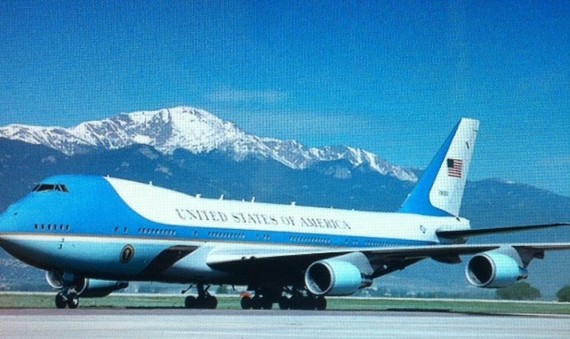The G20 summit of the world's top economies held recently in Hangzhou, China, was a big show short on substance. But one important incident flew under the radar that the media, conveniently or ignorantly, failed to highlight its importance: How the Chinese treated the beleaguered president of the United States.
Diplomatic norms mandate a respectful protocol for taxiing a presidential plane into place and providing the rolling staircase for dignified departure from the aircraft for heads of state. Yet Air Force One sat on the tarmac a while. Worse, the American president had to exit the plane from its back door rather than the front.
Or as one Chinese official put it, "through the ass of the plane."
Some might see this incident as nothing more than an embarrassing miscommunication. But the excuse doesn't pass muster under the lenses of international relations. As I explained to my students in the international relations master's program at Texas A&M University-Commerce, in international relations context matters. How China treats the U.S. president sends a message.
So was this mere miscommunication? I don't believe so. Is China sending a message to the United States? Almost certainly.
Through its long history of dealings with the world, China has demonstrated a keen understanding of diplomatic protocols. So it's perplexing to us in the West to watch such behavior exhibited by a country that not only prides itself on its image, prestige and status on the global stage but also remains sensitive to diplomatic niceties, especially when hosting global gatherings on its soil.
The message this incident sends is troubling. It conveys Beijing's subtle challenge to the United States. It tells us our days of leadership in the Pacific are numbered. Proof? Chinese leader Xi Jinping did not even issue an apology after the debacle on the tarmac.
From China's perspective, the incident offers a pointed response to the U.S. stance on China's expansion in the South China Sea. Letting Air Force One cool its heels on the tarmac and forcing the U.S. president to exit the plane from the rear delivered payback to President Obama for his moving oratory about the need to adhere to international law, resolve disputes peacefully and respect other states' sovereignty (for instance, neighboring Japan, South Korea and Vietnam, to name but a few).
China's insult did not come in a vacuum. Other countries have been carefully watching for whether the United States' words match its deeds. How many know that, in 2013, Russian President Vladimir Putin kept Secretary of State John Kerry waiting outside his office for three hours before he was allowed in. And what of the latest harassment by the Iranian navy of U.S. vessels patrolling areas in the Persian Gulf? And what of China's ongoing construction in the South China Sea in defiance of the International Tribunal Court's recent ruling?
These incidents have in my opinion convinced China that the time has come to challenge the United States diplomatically and overtly, even as nations such as Japan and South Korea look to us for leadership.
As I argue in my forthcoming book, "Volatile State: Iran in the Nuclear Age," it is a matter of time before Russia and China coordinate further efforts regarding the chaotic Middle East. I do not see how both would ever work with the United States to contain Iran. In the case of China, Beijing will not want to jeopardize its trade with the region, mainly Iran, following the lifting of sanctions on the latter.
Further, China's establishing a naval base in Djibouti aims to increase its influence in the region.
Amid a tumultuous U.S. election season brimming with insults, xenophobia and conspiracy theories, the Washington establishment must somehow consider the bigger picture. However paralyzed it may be from political infighting, it must draw on leadership from both political parties to put America's strategic international interests before party. It must resolve to act or risk further humiliation as we lose while bickering among ourselves.
For starters, the next U.S. president will be utterly mistaken to think that China will back down given the new geopolitical landscape -- one far more complex and daunting than many U.S. voters fully understand. Alas, the emerging new geopolitical landscape will prove to be far beyond the ability of Washington to control and influence alone.

